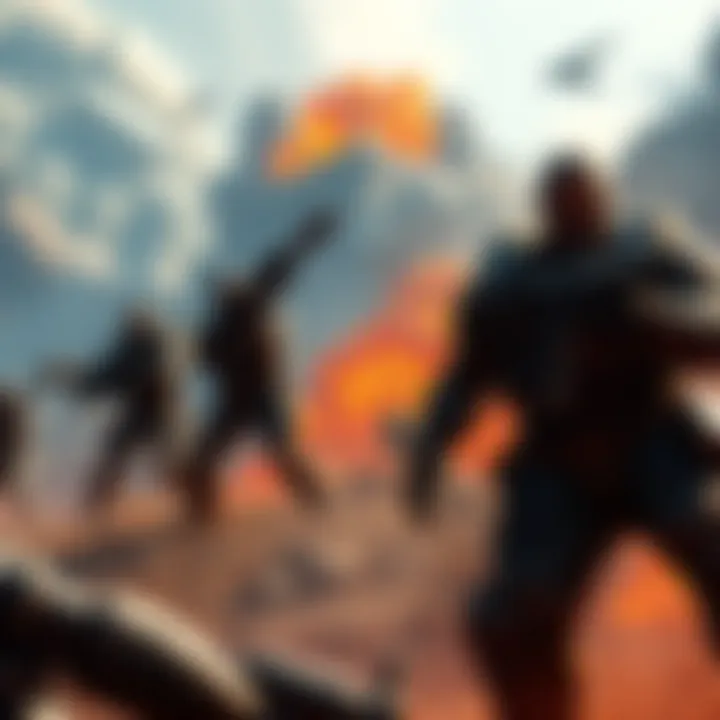Gears of War: Judgement Gets Mixed Reactions | A Closer Look at Community Opinions
Edited By
Marcus Chen

A wave of opinions has emerged regarding Gears of War: Judgement, with players divided over its gameplay decisions post-launch. Some enthusiasts believe the title strayed too far from the essence of the GOW franchise, criticizing its Call of Duty-inspired controls while others are more optimistic about the changes.
Shifting Perspectives in GOW: Judgement
Many players initially felt let down by GOW: Judgement, specifically citing the altered control scheme. This shift to a Call of Duty model did not sit well with fans who expected a more traditional GOW experience. One commenter articulated,
"Seeing as absolutely nowhere in-game does it specify a time period, the story would make more sense if it was retcon’ed to be 3-5 years into the Locust War."
Despite these concerns, some users appreciate the fresh perspective on familiar characters, like a more hopeful Baird. This change in tone offers a new depth as Kilo Squad navigates challenges against emerging foes, potentially setting the stage for interesting narratives in future titles.
Positive Aspects: Declassified Missions and Overrun Mode
The game introduced Declassified Missions, which are seen as an exciting addition to the lore, despite their challenging nature. As one fan expressed, they found these missions engaging as they tested different play styles:
"I thought having to take on these challenges gave me a neat puzzle to solve."
Another standout feature, the Overrun mode, combines elements of hero and horde shooters, offering players a unique PvP experience. While limited map selection drew some criticism, the innovative mechanics keep many players hooked.
Major Concerns: Absence of Classic Modes
However, the exclusion of core game modes like Horde and Beast has been a significant letdown for diehard fans. The absence of Horde mode, which has been a beloved aspect since GOW 2, makes Judgement feel less like a GOW game to many.
The Beast mode's challenge and immersion are sorely missed, as players reminiscing call for its return to future entries. Comments reflect a mix of nostalgia and disappointment over this missing gameplay aspect.
PvP Experience: Room for Improvement
Although GOW: Judgement offers an intriguing PvP experience, many believe it could have benefited from additional maps. The community feels that an expanded map variety would enhance overall gameplay.
One player noted,
"With three to four more additional maps, this would have made for a solid PvP experience."
Final Thoughts: GOW Judgement's Legacy
In short, GOW: Judgement has sparked conversation and debate within the gaming community. It presents a mix of innovative ideas and missed opportunities, leaving many players wanting more.
Key Insights:
△ Many fans criticize the Call of Duty-style controls introduced in Judgement.
▽ Declassified Missions add engaging lore despite being challenging for some players.
※ "I wish anyone who has not had the privilege of playing GOW 3 plays it" - User lamenting the absence of Beast mode.
As sentiments continue to evolve, the impact of GOW: Judgement will likely shape future iterations of the franchise.
Future Outlook for Gears of War: Judgement
In the wake of these discussions, there’s a strong chance that future iterations of Gears of War will prioritize returning to its roots while integrating fresh gameplay elements. Experts estimate around 70% of players are calling for the return of the beloved Horde and Beast modes. Game developers are likely to gauge these sentiments, adjusting their design choices accordingly. Additionally, the community's mixed feelings on PvP map variety suggest that more diverse maps could be on the horizon, perhaps around half of all current players see this need as essential for maintaining interest in competitive play. As these conversations continue, it's clear that Gears of War's legacy and player feedback will shape its future significantly.
A Historical Echo of Gaming Evolution
Much like how the early days of comic book adaptations saw critical backlash for straying too far from the source material, Gears of War: Judgement reflects the ongoing struggle within creative industries to balance innovation and tradition. When the Batman franchise first adopted a darker tone in Batman Begins, fans were skeptical but eventually embraced this fresh direction. Similarly, Gears of War can look to the path of other franchises that faced similar crossroads, where initial resistance evolved into newfound appreciation. This journey illustrates how diverging from established patterns can lead to growth and reinvention, paving the way for a stronger, more vibrant future in gaming.
